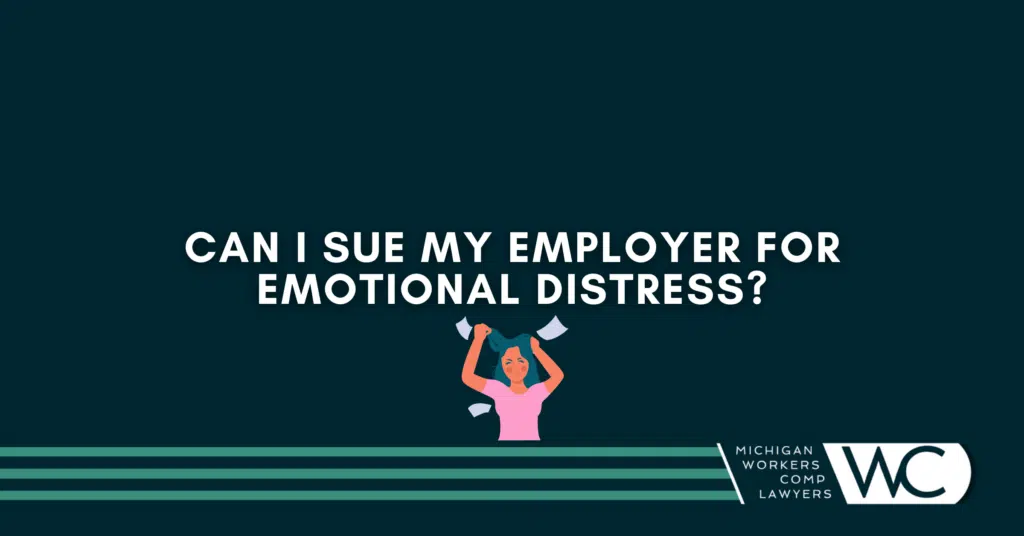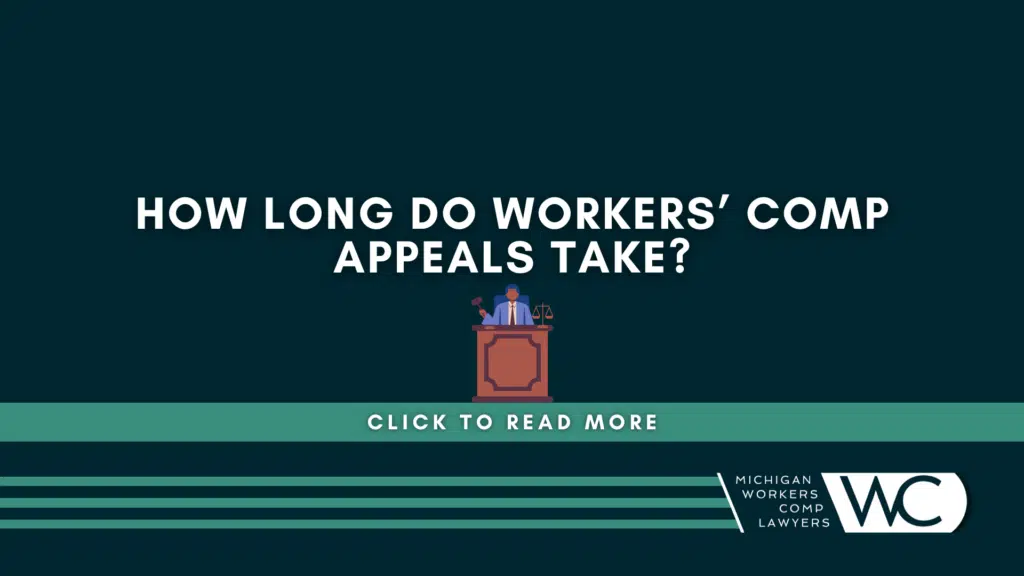
MIchigan workers’ compensation lawyer explains how an employee can sue an employer for emotional distress but will probably be limited to medical and wage loss only.
State law protects employees who develop work-related medical conditions. This includes claims for stress and anxiety. Available workers’ compensation benefits include medical treatment and lost wages. Many or our clients wonder if they can sue their employer for emotional distress in Michigan and the answer is ‘yes,’ but these claims are hard to prove.
Whenever a disabled employee reaches out to our office about emotional distress it usually involves stress and anxiety at work. These types of claims are covered under workers’ compensation in Michigan. However, the burden falls to the employee to prove entitlement to medical and/or wage loss benefits.
It is also possible to file a lawsuit against a person/organization and/or its insurance company for emotional distress based upon claim handling. However, these cases are almost impossible to prove unless evidence of outrageous and shocking behavior exists.
Can I sue my employer for emotional distress in Michigan?
In Michigan, though you can sue your employer for emotional distress, claims for stress and anxiety are difficult to prove and the end result may not be what you expect. Nobody really knows what an employee is thinking or feeling. There is no test showing whether someone cannot work due to emotional distress. Everybody reacts differently to situations and some people cope better than others.
In regards to suing your employer for emotional distress in Michigan, unfortunately, insurance companies rarely accept claims based upon stress and anxiety. These are typically disputed as being not work-related and personal issues are blamed. A reasonable person standard should be applied to determine if an employee’s perceptions are grounded in fact and reality. Events cannot be made up, imagined, or happen in someone’s head. However, once an event has been established, an employee’s individual reaction should be accepted.
Medical treatment should be covered 100% without copayments or deductibles being owed. This includes prescriptions, counseling, and even inpatient treatment. Wage loss benefits should be paid weekly and continue for the entire length of disability. It is based upon 80% of an employee’s after-tax average weekly wage. This includes overtime, discontinued fringe benefits, and even second jobs. Pain and suffering are not available.
Can I file a lawsuit against my employer for a bad-faith claim?
Courts have been inconsistent about whether a person can seek additional damages for intentional infliction of emotional distress. This occurs when a claim is poorly handled, or workers’ compensation benefits have been unfairly cut-off. Just having workers’ compensation benefits disputed would never give rise to such a claim.
Can I sue my employer for emotional distress and bad faith in Michigan?
The Court of Appeals has found some instances where an employee can file a civil action for bad faith claims handling. The employee must prove (1) extreme and outrageous conduct; (2) intent or recklessness; (3) causation; and (4) severe emotional distress.
Proving bad faith is extremely difficult and the conduct alleged must be outrageous. Having workers’ compensation benefits stopped because of an independent medical examination (IME) would not arise to such a level.
Injured on the job? Call our attorneys now!
If your job in Michigan has caused you emotional distress and you are wondering if you can sue your employer, then call now to speak with an experienced attorney, or fill out our contact form for a free consultation. There is absolutely no cost or obligation. We’re here for you.
Our attorneys have been exclusively helping injured workers in Michigan for more than 40 years. Our attorneys can help you better understand work comp laws and what happens after someone has been hurt on the job. To see what our own clients have to say about the caring, compassion, and communication they received from us, you can read in their own words about their experience here on our testimonials page from clients we have helped.
Michigan Workers’ Comp Lawyers never charges a fee to evaluate a potential case. Our law firm has represented injured and disabled workers exclusively for more than 40 years. Call (844) 316-8033 for a free consultation today.
Related information:

